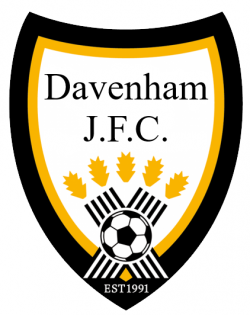Club Guidance for a return to football during COVID-19
(issued 20th July 2020)
The following guidance, which is in line with FA guidance, must be followed for all training sessions and matches, in addition to anything highlighted as being relevant to a particular team in its risk assessment – failure to comply with this could put players, coaches, parents/carers at risk, risk our ability to continue to train or play matches and could invalidate our insurance:
- All coaches must keep up to date with Government and FA guidance and ensure this is followed at all times;
- This document must be circulated to parents of all registered players;
- Everyone should self-assess for COVID-19 symptoms before every training session or match. If you are symptomatic or living in a household with possible or actual COVID-19 infection you must not participate or attend – this includes players, coaches, parents, carers, spectators and match officials; at the time of writing potential indicators are:
- A high temperature (above 37.8oC);
- A new continuous cough;
- Shortness of breath;
- A sore throat;
- Loss of or change in normal sense of taste or smell;
- Feeling generally unwell;
- Been in close contact/living with suspected or confirmed cases of COVID-19 in the previous two weeks
- Competitive training is limited to groups of a maximum of 30 people, including coaches;
- During competitive matches, social distancing should be maintained as much as possible before, during and after the match, including any breaks in play – this includes:
- no handshakes;
- teams warming up in opposite halves of the pitch;
- as much as possible warm-ups should also maintain social distance within the same team;
- as far as possible team talks before, during and after should be kept to a minimum and maintain social distancing
- coaches/subs for each team should stand on opposite sides of the pitch where possible;
- parents/carers/spectators should also be reminded to social distance, remain in distinct groups of up to 6 people and remain behind the respect barrier at all times;
- Where possible the respect barrier should be set at least 5m back from the touchline (this will not be possible on some pitches, e.g. some at Moss Farm, but best efforts should be made);
- Once the warm up starts players should not cross the respect barriers, even to see their parents/carers until the game and any warm down/team talk is complete, this includes to get drinks which they should have with them (and be labelled) – it is appreciated that this will not always be possible especially with younger age groups but best efforts should be made
- In terms of training, similar guidance should be followed and parents/carers should be encouraged not to stay – this will not always be possible for younger age groups and if a team has a good number of parents/carers staying for the session they should consider putting up a respect barrier, but otherwise parents/carers should be reminded to keep their distance and a team should follow the guidance set out in point 3f and 3h above.
- Players, officials and coaches should sanitise hands before and after a game/training session as well as at any scheduled breaks throughout a game or training session;
- Ball handling should be kept to a minimum with most contact via a boot and the ball disinfected in breaks of play/training (e.g. at half time);
- Coaches are encouraged to limit persistent close proximity of participants during match play and training as much as is practical;
- Goal celebrations should be avoided where this brings players into close proximity;
- Equipment should not be shared with other teams and as much as possible by participants (e.g. bibs should not be used), and goalkeepers should ensure they disinfect their gloves regularly in breaks in training or matches and thoroughly afterwards. Where possible, coaches only should handle equipment (e.g. cones) in training;
- Any changing facilities are not to be used and players, coaches and officials should arrive changed and ready to go;
- Indoor facilities are not to be used;
- Participants should follow best practice for travel including minimising use of public transport and walking or cycling if possible. People from a household or support bubble can travel together in a vehicle, but beyond that lifts should not be shared – this need emphasising to parents/carers, but we are not expecting coaches to police beyond regular reminders, especially if they observe ‘issues”;
- Each team needs to keep a record of attendees at every match (including home spectators) and training session (including parents or carers who stay), including contact details, to support NHS Test and Trace;
- Only (club) DBS checked coaches should be involved in any training sessions or match days in any capacity – this guidance has not changed and has always been in place;
- Only players who have been registered on WGS by the club and who have signed a consent form should be allowed to participate in any training, match day or any other team/club activities – this guidance has not changed and has always been in place.
